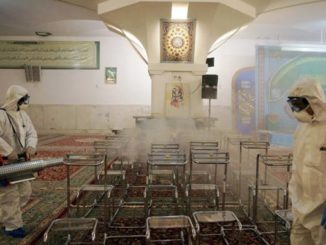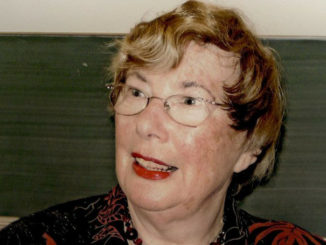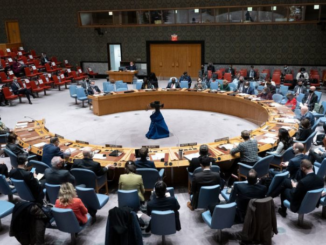
By Romana Rubeo
Since the start of the ‘Great March of Return’, on March 30, every day, but especial every Friday, has been marked by bloodshed; at times, even true massacres.
Week after week, Israeli forces shot unarmed Palestinians, protesting at the border to convey to the world a resounding message: break the siege and we will never give up our right of return.
I have always believed that the least the rest of the world can do to support the Palestinian people’s struggle for liberation is to acknowledge their strength, their creativity, and their humanity, and to challenge the image that the Israeli oppressor wants to convey about Palestinians: unruly, worthless and dehumanized.
But there is always a ray of hope: in the eyes of a child making his own anti-teargas mask; in the steps of young people dancing traditional Palestinian dance known as Dakbe; in a couple getting married at the border; in the story of young people falling in love while treating wounded people in the makeshift tent hospitals.
It is in this reality that the pain of daily life meets the courage of resistance; where the countless injustices of occupation are confronted with the pride of a people so adamant to fight back, to survive and triumph.
But on Friday, June 1, when Razan al-Najjar was shot dead at the Gaza border while trying to rescue and evacuate injured people, it was hard to find a light of hope in an ocean of sorrow.
However, Razan’s story is also the story of a fighter; her life is the symbol of resistance, which doesn’t fade and cannot die.
A few days before her death, the 21-years-old medic from Gaza was interviewed by the New York Times.
While she was looking at the camera, speaking about the role of women along the Gaza border, this beautiful, young girl looked stronger than any stereotyped version of Wonder Woman.
With her hijab highlighting her beautiful face, she looked freer than any cliché feminist in the West, shouting empty slogans and confusing freedom with the centimeters of fabric that are taken away from their clothes.
No men, Razan said, could do what she was doing. Indeed, few could.
Every Friday Razan left her family home, and she went to the border, to rescue the wounded with only one clear goal in her mind: “To save lives and to send a message to the world, that (even) without weapons, we can (still) do everything.”
Razan had no weapon while she was rushing to her death to evacuate an injured peaceful protester and to save his life.
She was proudly wearing her medical uniform, which, according to International law and the Geneva Conventions, should have guaranteed her safety. Witnesses said that she raised both hands to show the Israeli snipers that she posed no threat.
They killed her anyway. They decided to end her life by showing any mercy. They penetrated her chest with one single bullet.
I want to believe that Razan didn’t even realize she was dying; that while the sniper was pulling the trigger, she only had one thought in her mind: that she was powerful, stronger than men, stronger than Israelis, stronger than that injustice that forced her and other Palestinian youth to fight for their unalienable right to live a dignified life on their own land.
I want to think that she felt invincible.
Razan was shot dead on the battlefield, among friends and coworkers, who immediately surrounded her body trying to save her, showing their love and expressing their pain.
The bloodstained white uniform, which should have protected her, remained in the hands of her mother: the image of that woman, sitting on a bench, her eyes consumed with grief and dignity, will live in my mind forever.
Soon after her death, word got out that Razan had been killed by another woman, a young soldier named Rebecca, coming all the way from Boston, USA, to join the Israeli army. Later, we knew that it was not the case. However, the unbearable, collective pain generated by weeks of losses led to mythmaking: ‘Rebecca’ was only a symbol, utilized to exorcise the demon of pain.
All those Palestinian victims, 123 dead and over 13,000 injured and counting, yet no Israeli killer was ever held accountable; hours, days, weeks, months and years of suffering, without a precise definition of who the executioner was.
The truth is: we don’t need the ‘Rebecca’ myth to know who is truly behind Razan’s murder and behind the murder of thousands of Palestinians.
It is not enough to blame on Israel, or its apartheid system, or its brutal policies of occupation and colonization, or its cruel military wing.
Every government and every individual who doesn’t publicly condemn Israeli actions is morally responsible for this ongoing massacre, this collective tragedy.
However, on that particular day, while Razan was departing our world, another woman, from a mile away, decided to symbolically pull that trigger along with the Israeli sniper at the Gaza border.
No, not ‘Rebecca’ or any other woman in military uniform and boots, but a woman in a business suit, just back from the salon, with her hair all done up: Nikki Haley.
While Razan was rushing to her death, devoting herself to an ideal of freedom and justice, Haley, the US Ambassador to the United Nations, was dedicating herself to something completely different.
She decided to veto the resolution put forward by Kuwait on behalf of Arab countries and to present a rival draft resolution, blaming Palestinian resistance, demanding them to “cease all violent activity and provocative actions, including along the boundary fence.”
She described the vetoed resolution as a “grossly one-sided approach that is morally bankrupt and would only serve to undermine ongoing efforts toward peace between the Israelis and Palestinians.”
While Razan al-Najjar was making the ultimate sacrifice, in the name of justice and empowered woman the world over, Haley was deliberately condemning innocent people to death, in the name of moral corruption masked as realpolitik.
Her words were a litany of lies, and her reference to those abstract ‘ongoing efforts towards peace’ should make us aware, once and for all, that the so-called ‘peace process’ is nothing but a brand, an empty mantra used to demonize and crush Palestinian resistance of any kind – whether a fighter with a gun or Razan with her white medical gown.
We owe it to Razan that we forever remember her face every time Haley’s lies try to poison our understanding of the truth in Gaza and throughout Palestine.
Let’s think of Razan’s words on camera every time the US and its allies give themselves the right to police the world and claim to defend civil rights, freedom, and democracy.
Let’s also think of Haley’s hypocrisy and cruelty while she vetoed a draft that would have provided Razan and millions of Palestinian civilians protection and safety in their land – a place where nobody is safe, not even those with a white medical uniform.
– Romana Rubeo is a freelance translator based in Italy. She holds a Master’s Degree in Foreign Languages and Literature and she is specialized in Audio-Visual and Journalism Translation. An avid reader, her interests include music, politics, and geopolitics. She contributed this article to PalestineChronicle.com.







